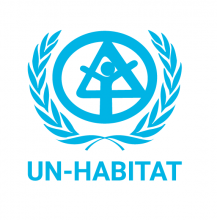Dear municipal leaders,
Accurate and comprehensive measurement is the foundation for monitoring progress towards humanity's collective goals. With a projection that over 60% of the global population will reside in urban areas by 2030, it becomes crucial for cities to prioritise inclusivity, safety, resilience, and sustainability. Achieving these objectives requires reliable and comprehensive measurement of cities’ progress on critical metrics of sustainable urban development.
In pursuit of this objective, we invite you to participate in the implementation of the Urban Performance Index (UPI), an initiative of Economist Impact in collaboration with UN-Habitat. This initiative aims to enhance urban monitoring and informed decision-making by facilitating data collection and the dissemination of knowledge among cities and countries.
The UPI measures cities’ level of sustainable urban development across 30 indicators encompassing health, economy, environment, culture and governance. The index aims to empower city and national leaders to identify best practices and sustainable interventions, quantify policy and infrastructure gaps, and develop pathways for proactive change and efficient resource allocation. Participation in the initiative entails the relevant city officials collaborating with Economist Impact and UN-Habitat teams to provide data on these indicators. The UPI will be a bi-annual index, with its first phase beginning in late 2023 and expected to run through the 2024 calendar year.
The UPI is derived from UN-Habitat’s established Global Urban Monitoring Framework (UMF) — a comprehensive framework designed to enable city authorities, as well as local and national stakeholders, to monitor the progress of their cities towards sustainable urban development. The UMF was developed via a consultative process led by UN-Habitat, involving 36 partners from the UN system, government, civil society, academia and research organisations, and was endorsed by the UN Statistical Commission in March 2022.
Benefits of participation:
As a participant in this initiative, your city will collect data to inform decision-making, benefit from visibility and networking opportunities and attract investment to improve urban management towards achieving sustainable development and shared prosperity.
Specifically, your city will benefit in the following ways:
-
Knowledge: Participating cities will generate data that will help identify gaps, measure progress, prioritise needed interventions, and facilitate effective governance. By gathering the data, you will set baselines and benchmarks to track progress in your city. You also have the opportunity to become a source of data-driven information for your stakeholders.
-
Visibility: The results will help highlight your city’s achievements for a global audience.
-
Network: By participating in the project, you will join a global network of like-minded urban leaders collectively pursuing sustainable development. The project will help you to exchange knowledge and best practices with other cities.
-
Investment: The generated evidence and data can be used to justify and guide investments and public-private partnerships in your city.
Cities that have implemented the UMF will possess nearly all the necessary data for the UPI. For cities that have yet to implement the UMF, involvement in the UPI can be a starting point in this process, as well as an opportunity for visibility, networking, investment and partnerships.
How to express interest:
By expressing interest, you confirm the political and logistical commitment of the municipal leadership or an alternate body acting on behalf of their government on the following points:
-
Nominating a focal point for subsequent communications regarding UPI. The focal point is expected to facilitate outreach to representatives from relevant institutions such as urban planning and development departments, statistics offices, and agencies responsible for monitoring and reporting on Sustainable Development Goals.
-
Providing the appointed focal point with relevant statistical data to facilitate initiative implementation, as and when required. The Economist Impact and UN-Habitat teams will provide guidance on data collection and computation by providing a data collection template. The template will include indicator definitions, methods of computation, potential sources and references to metadata (where applicable).
-
Willingness to participate in project knowledge management and exchange through workshops and country-to-country exchanges, where applicable. This also includes sharing experiences and best practices to contribute to project publications and audio-visual communications.
We invite city leaders, municipal officials, and other stakeholders with the authority to represent the city to express their interest in participating. Please submit a response to this letter via email to [email protected] by February 21, 2024. The project team will then provide additional information on next steps.
For inquiries or further information, please contact Durukhshan Esmati, Policy and Insights Manager, Economist Impact, at [email protected]





